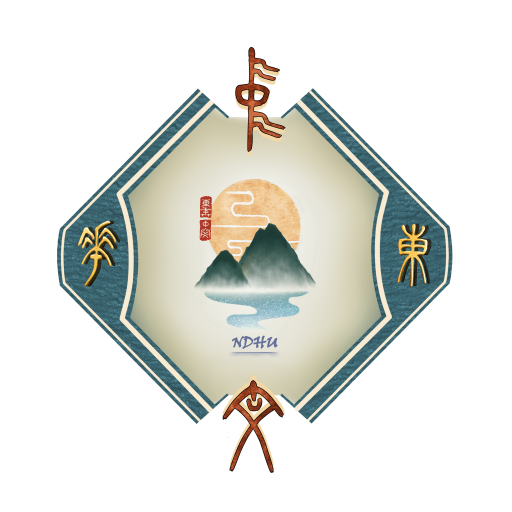English
The Department of Chinese Language and Literature at National Dong Hwa University, formerly the Department of Chinese Language and Literature at Meilun Campus (originally National Hualien University of Education), achieved its current scale through a significant integration in 2010. This merger combined the faculty of the Meilun Campus, the Shoufeng Campus (formerly National Dong Hwa University's Department of Chinese Language and Literature), and the Institute of Folk Literature.
This integration has created a department that not only upholds an excellent tradition of cultivating language professionals and boasts a long history of fruitful academic research, but also incorporates specialized expertise in folk literature. The newly consolidated structure offers a complete academic framework and a stronger faculty. Our current departmental structure includes a Bachelor's program, Master's programs (including a Folk Literature track), and Doctoral programs (including a Folk Literature track). All faculty and students are dedicated to achieving excellence in teaching and developing distinctive research, making us a key center for humanities scholarship in Eastern Taiwan.
Cultivating Diverse Skills and Academic Depth
At our department, students have ample opportunities to develop a wide range of specialized skills and abilities. These include:
-
Professional knowledge in Chinese language application, reading, and writing.
-
Literary cultivation in appreciation, creation, and criticism.
-
Academic breadth in reading and interpreting classical texts (canonical works, historical records, philosophical treatises, and literary collections).
-
A macroscopic perspective that integrates and bridges ancient and modern literature.
These areas are fully developed, making our department an excellent learning environment for students, whether they plan to pursue employment or further their academic studies. We are dedicated to building our students' comprehensive strengths and scholarly foundations.
Curriculum Design and Pedagogy
In terms of curriculum design, our department adheres to the principle of balancing classical and modern studies while maintaining a dual focus on academic rigor and practical application. This approach encourages students to apply theoretical knowledge, deepening their understanding of both traditional culture and contemporary thought, thereby enabling classical and traditional wisdom to manifest new opportunities and vitality within modern intellectual currents.
For course instruction, we emphasize the thorough study of original texts from various classical fields (canonical works, historical records, philosophical treatises, and collected works). This guides students to appreciate the intricacies of the Chinese language and characters, and to explore the essence of meaning, rhetoric, textual criticism, and statesmanship. By employing diverse academic perspectives, students not only progressively grasp the core of traditional Chinese scholarship but also extend their learning to contemporary literary works, integrating linguistic content with current linguistic trends. This actively prepares them to engage with the new currents of Chinese culture in the 21st century.

